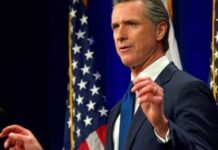
The race for tax cuts is heating up as the November 5 election gets closer. Donald Trump has even suggested that he might exempt police officers, firefighters, active-duty military, and veterans from paying taxes. This is part of his strategy to win over these important groups of supporters.
During an online show called Maintaining with Tyrus, Trump said, “It’s something I would think about” when asked about tax breaks for first responders and military members. He added, “Something has to be done,” hinting that such moves could attract more people to his campaign.
This proposal by Trump is the latest among many tax ideas from both presidential candidates. Trump has also promised to eliminate taxes on tips, overtime pay, and Social Security benefits.
While Trump spoke about this latest tax emption, he didn’t provide any specific details about the tax breaks for military and first responders. For any of these tax exemptions to become law, they would need approval from Congress. Without a Republican majority, most of Trump’s promises could end up being empty words.
However, if implemented, the tax break for military members and first responders could affect over 20 million people. There are approximately 18 million veterans, 1.3 million active-duty military members, about 1 million police officers, and over 300,000 firefighters in the U.S. Currently, some tax exemptions exist for military personnel, but they mainly apply to those in active combat zones.
Lately, Trump has been promoting tax cut plans aimed at attracting voters, especially those struggling with high prices. His wide range of tax proposals has even left his advisors uncertain about which ones he actually plans to implement if elected.
With the U.S. budget deficit hitting an alarming 6% of GDP, neither candidate seems worried about the growing debt. Trump is also campaigning to extend the tax cuts that were introduced during his presidency, which are set to expire at the end of 2025. Trump has also stated that he wants to lower corporate taxes from 21% to 15% and expand deductions for state and local taxes, especially in states like New York and California, where Republicans face tough elections.
Economists warn that these policies could increase the federal debt significantly—up to $15 trillion over the next decade, according to estimates. Trump believes that economic growth and energy production will make up for the loss of tax revenue if the tax exemption is passed by Congress. However, critics argue this is a problem because they believe it’s unrealistic. Concerns arise that relying on uncertain economic growth might lead to bigger budget deficits. This could mean the government will have difficulty funding essential services and programs that people depend on. Without a solid strategy to replace the lost tax revenue, there is a risk that the country’s financial health could decline.
Trump pointed out that Kamala Harris could add even more to the federal debt, with her administration already increasing it by $8 trillion. He said that her potential plans for reparations could double or triple the debt.
In the same interview, Trump suggested that military personnel could become educators to enhance school security. He stated, “What about military personnel who become history teachers? They know how to use a gun.” There is currently a program called Troops to Teachers that started in 1993. Since the program’s initiation, over 100,000 veterans have successfully transitioned into careers in education.
Several states, including Iowa and Tennessee, have permitted teachers to carry concealed weapons on school campuses. This decision has drawn criticism from teachers’ unions and some parents, who worry it may make schools less safe.










